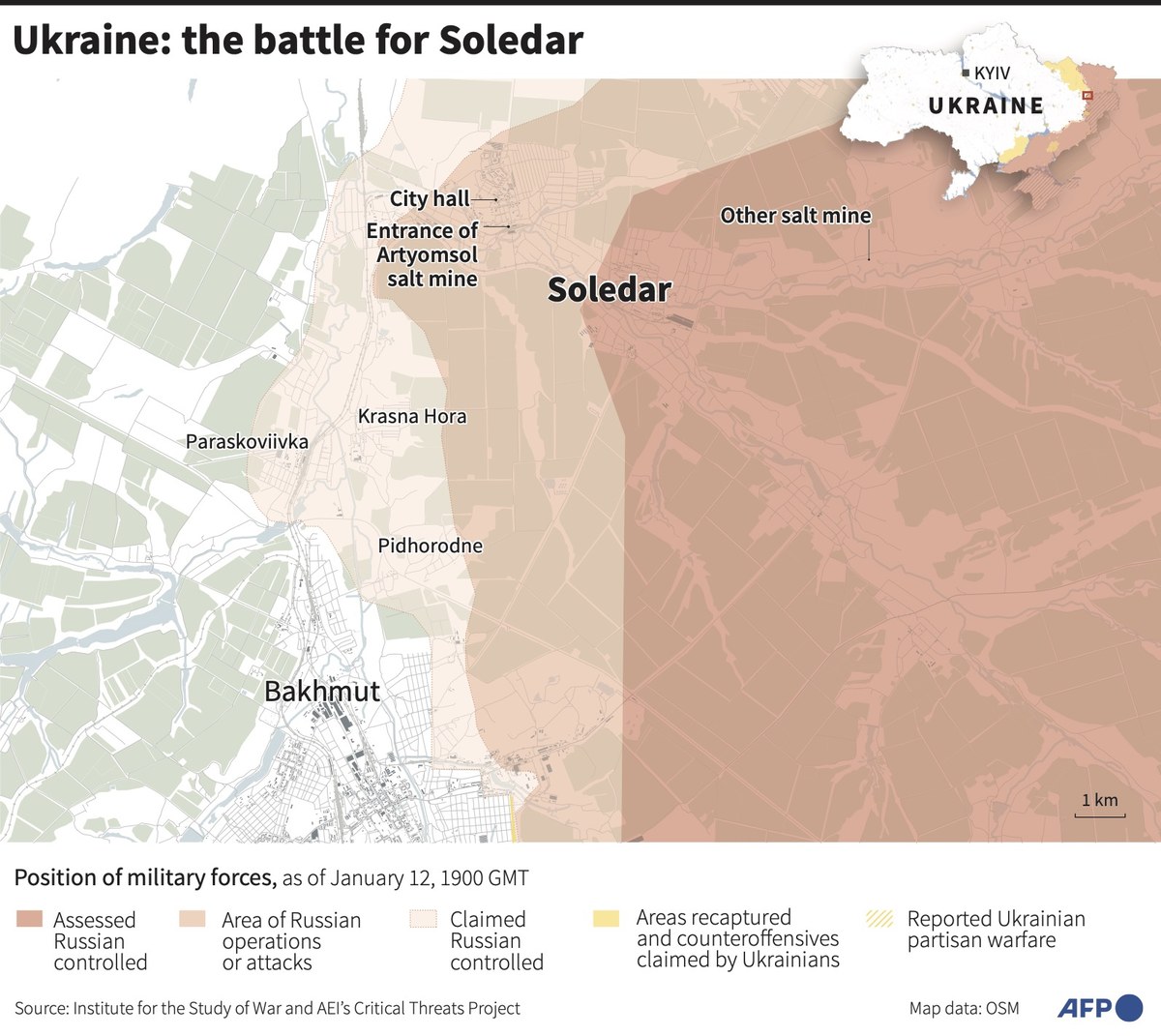KYIV, Ukraine Ukrainian President Volodymyr Zelensky on Sunday condemned Russian people’s “cowardly silence” as the toll for the missile strike on a tower block in the eastern city of Dnipro reached 30.
Zelensky noted in his evening address that Ukraine had received many messages of sympathy from around the world in the wake of Saturday’s attack.
Switching to Russian, he said he wanted to address those Russians “who even now could not utter a few words of condemnation of this terror...
“Your cowardly silence, your attempt to ‘wait out’ what is happening, will only end with the fact that one day these same terrorists will come for you,” said Zelensky .
The Ukrainian leader said that the victims of the missile strike included a 15-year-old girl and that two children had reportedly been left orphans.
Rescuers were still searching the rubble for 30 missing people, he added.
Opinion
This section contains relevant reference points, placed in (Opinion field)
Fighting is continuing in the eastern Donetsk region, where Russian forces have claimed the capture of Soledar, despite denials from Ukraine.
In Moscow, President Vladimir Putin said the Russian military operation in Ukraine had gained positive momentum, and he hoped his soldiers would deliver more wins after Russia claimed control of the eastern Ukrainian salt mining town of Soledar.
Russia on Friday said its forces had taken control of Soledar, a rare success for Moscow after months of battlefield reverses.
“The dynamic is positive,” Putin told Rossiya 1 state TV when asked about the taking of Soledar. “Everything is developing within the framework of the plan of the Ministry of Defense and the General Staff. And I hope that our fighters will please us even more with the results of their combat.”
Putin now casts the war in Ukraine as an existential battle with an aggressive and arrogant West, and has said Russia will use all available means to protect itself and its people against any aggressor.
A regional governor in Ukraine on Saturday said Ukrainian forces were still fighting to retain control of Soledar.
The Washington-based Institute for the Study of War said it was Russian President Vladimir Putin said the military operation in Ukraine had gained positive mo- mentum, and he hoped his soldiers would deliver more wins after Russia claimed control of the eastern Ukrainian salt mining town of Soledar.

Russia on Friday said its forces had taken control of Soledar, a rare success for Moscow after months of battlefield reverses.
“The dynamic is positive,” Putin told Rossiya 1 state TV when asked about the taking of Soledar. “Everything is developing within the framework of the plan of the Ministry of Defense and the General Staff. And I hope that our fighters will please us even more with the results of their combat.”
Although the West has imposed what it says are unprecedented sanctions on Russia over the war, the economy of the world’s biggest producer of natural resources has shown resilience. Putin says Russia is now turning away from the West and will trade with Asian powers such as China and India.
“The situation in the economy is stable, much better than not only what our opponents predicted but also what we forecast,” he said
























